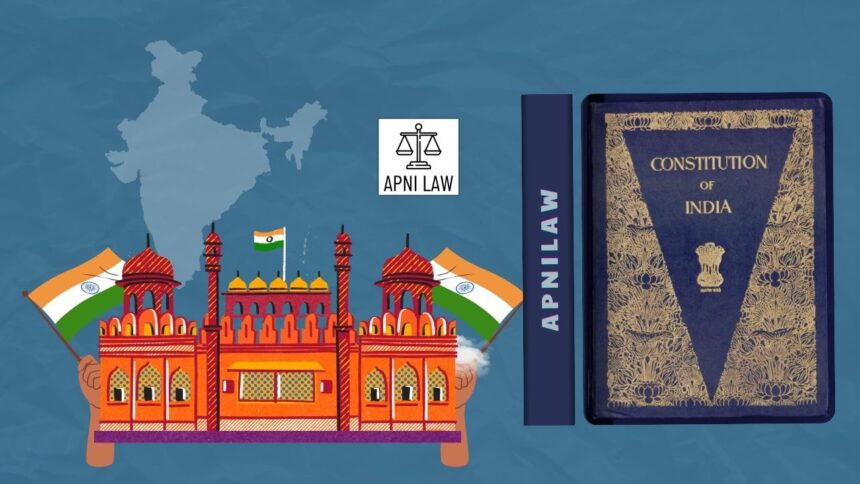Introduction
The State Public Service Commissions (SPSCs) are vital constitutional bodies responsible for recruiting and managing civil services at the state level in India. Established under Article 315 of the Indian Constitution, these Commissions function as the state counterparts of the Union Public Service Commission (UPSC). Their primary role is to ensure a fair, transparent, and merit-based system for appointing individuals to various administrative positions within the state governments.
India’s governance system depends heavily on competent and impartial civil servants. While the UPSC handles recruitment for central services, the SPSCs perform the same function for states, ensuring that local administrations operate efficiently. These Commissions uphold the democratic values of equality, fairness, and integrity, forming the foundation of effective public administration.
Constitutional Basis of State Public Service Commissions
The Constitution of India, through Articles 315 to 323, provides for both the Union Public Service Commission and the State Public Service Commissions. According to Article 315(1), there shall be a Public Service Commission for the Union and for each state. However, Article 315(2) allows two or more states to establish a Joint State Public Service Commission (JSPSC) if they agree to share one.
The framers of the Constitution envisioned these Commissions as independent institutions insulated from political influence. Their autonomy ensures that recruitment to state services remains based on merit rather than favoritism. This independence is safeguarded through fixed tenure, secure service conditions, and financial autonomy drawn from the state’s Consolidated Fund.
Composition of State Public Service Commissions
Each State Public Service Commission is composed of a Chairperson and other members appointed by the Governor of the state. Generally, half of the members must have held office under the Government of India or a state government for at least ten years.
The term of office is six years or until the age of sixty-two, whichever comes first. The members enjoy protection against arbitrary removal and can only be removed by the President of India on the grounds of proven misbehavior after an inquiry by the Supreme Court. This structure reinforces their impartiality and independence from the executive branch of the government.
Powers and Functions of State Public Service Commissions
The State Public Service Commissions perform a wide range of functions, broadly categorized into recruitment, advisory, and disciplinary roles. These responsibilities ensure that the state bureaucracy remains efficient, accountable, and free from corruption.
Recruitment to State Services
The most prominent function of the SPSC is recruitment to state-level civil services and posts. The Commission conducts competitive examinations, interviews, and selection procedures to ensure that the best candidates join the state administration. Examinations such as the State Civil Services Examination are conducted annually to fill key positions in departments like revenue, police, education, and administration.
This recruitment process follows a strict merit-based framework, ensuring that no individual is disadvantaged by bias, favoritism, or discrimination. Through this transparent procedure, the SPSCs contribute to strengthening good governance at the state level.
Conduct of Examinations and Interviews
Apart from civil services, the SPSC conducts examinations for technical, professional, and subordinate services. These may include engineering, medical, forest, and judicial posts. The Commission designs the examination pattern, evaluates candidates, and conducts interviews to assess suitability for specific roles.
Interviews are often conducted to evaluate candidates’ personality, decision-making ability, and awareness of state issues. This comprehensive selection system ensures that every officer appointed through the SPSC is qualified both intellectually and ethically.
Promotion and Departmental Examinations
The State Public Service Commissions also conduct departmental examinations to promote existing government employees to higher positions. These examinations encourage merit-based growth and maintain professionalism within the bureaucracy.
By organizing regular departmental tests, the SPSC helps retain efficiency and ensures that experienced employees can advance based on ability rather than seniority alone. This enhances administrative competence and motivates state employees to maintain high performance standards.
Advisory Role to the State Government
Under Article 320(3) of the Constitution, the SPSC advises the state government on important administrative matters. These include recruitment methods, appointments, promotions, transfers, and disciplinary actions.
The Commission also provides recommendations regarding the framing of recruitment rules, setting service conditions, and deciding compensation or pension claims. Though the government is not legally bound to accept the Commission’s advice, it is generally followed in the interest of transparency and administrative justice.
Disciplinary Functions
The SPSC plays a quasi-judicial role when dealing with disciplinary cases against civil servants. It ensures that inquiries and punishments are fair and follow due process. Whenever a government employee faces allegations of misconduct, the Commission reviews the evidence and advises on appropriate action.
This function maintains a balance between protecting employees’ rights and ensuring accountability in public service. It also prevents political misuse of disciplinary powers by maintaining an independent check on executive actions.
Role of State Public Service Commissions in Good Governance
The SPSC serves as a bridge between the government and the citizens, ensuring that only capable individuals enter the public administration system. By upholding merit-based recruitment, it strengthens public confidence in the fairness and impartiality of the state government.
Moreover, the SPSC plays a vital role in maintaining continuity in state administration. As governments change through elections, the bureaucracy remains stable and non-partisan, thanks to the Commission’s unbiased recruitment process.
In a country as diverse as India, each state faces unique challenges. Through region-specific recruitment and advisory functions, SPSCs ensure that local needs are met efficiently while adhering to national administrative standards.
Challenges Faced by State Public Service Commissions
Despite their constitutional status, State Public Service Commissions encounter several challenges. The most common issues include delayed recruitment, political interference, and administrative inefficiency. In some cases, allegations of corruption or favoritism have damaged public trust in certain state commissions.
Additionally, the growing demand for government jobs has increased the number of candidates exponentially. Managing large-scale examinations while maintaining fairness has become a significant logistical challenge. To overcome these hurdles, SPSCs are now embracing digital reforms, including online applications, computer-based tests, and real-time result publication systems.
However, the key challenge remains ensuring independence and transparency. Political pressures often attempt to influence selection processes, but the integrity of the SPSC system depends on the moral courage and professionalism of its members.
Frequently Asked Questions
1. What is the main function of the State Public Service Commission?
The primary function of an SPSC is to conduct examinations and recruit candidates for various civil and administrative posts within the state government, ensuring fair and merit-based selection.
2. How is the SPSC different from the UPSC?
While the UPSC conducts examinations for central government services, the SPSC operates at the state level, focusing on recruitment for posts under the jurisdiction of the respective state governments.
3. Are the recommendations of the SPSC binding on the state government?
No, the recommendations are advisory in nature. However, they are highly respected and usually accepted to uphold fairness and transparency in governance.
Conclusion
The State Public Service Commissions stand as pillars of democratic administration in India’s federal structure. Their constitutional mandate ensures that the recruitment process for state services remains impartial, transparent, and merit-driven. Through their work, these Commissions not only fill government posts but also strengthen the values of accountability, equality, and integrity.
Despite facing challenges such as modernization needs and political pressures, SPSCs continue to adapt and evolve. Their contribution to maintaining the efficiency and neutrality of the state bureaucracy remains indispensable to the success of Indian democracy. In essence, the State Public Service Commissions are not just recruitment agencies, they are custodians of ethical governance at the state level.
For any specific query call at +91 – 8569843472








